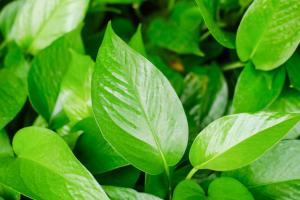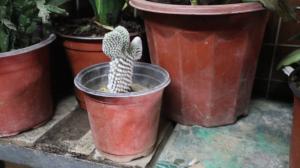What Can You Not Plant Near a Black Walnut Tree?
Black walnut trees are native to North America and are loved for their beautiful lumber and tasty nuts. However, these trees can be highly allelopathic, meaning that they release chemicals that can harm other plants. Many gardeners have experienced the frustration of trying to grow plants near a black walnut tree, only to see them wither and die. Here are some plants that you should avoid planting near a black walnut tree.
1. Tomatoes
Tomatoes are highly susceptible to black walnut toxicity. If planted near a black walnut tree, tomatoes may develop yellowing leaves, stunted growth, and reduced fruit production. In severe cases, the plants may die altogether. If you want to grow tomatoes in the vicinity of a black walnut tree, consider planting them in raised beds, away from the canopy of the tree.
2. Peppers
Peppers are another plant that is highly sensitive to black walnut toxicity. Like tomatoes, they may develop yellowing leaves and stunted growth when planted near a black walnut tree. If possible, plant peppers away from the canopy of the tree and in soil that has not been in contact with walnut roots.
3. Potatoes
Black walnut trees can release juglone, a chemical that is toxic to many plants, including potatoes. The symptoms of juglone toxicity in potatoes include yellowing, stunted growth, and reduced tuber production. If you must plant potatoes near a black walnut tree, choose a cultivar that is known to be resistant to juglone toxicity, such as 'Kennebec' or 'Green Mountain'.
4. Azaleas
Azaleas have shallow roots that make them vulnerable to juglone toxicity. If planted near a black walnut tree, they may develop yellowing leaves, stunted growth, and dieback. Azaleas are also sensitive to the acidic soil that black walnut trees produce. If you want to plant azaleas near a black walnut tree, consider planting them in raised beds with amended soil that is not in contact with walnut roots.
5. Lilacs
Lilacs are another plant that is highly sensitive to juglone toxicity. They may develop yellowing leaves, wilting, and dieback when planted near a black walnut tree. If you want to grow lilacs near a black walnut tree, consider planting them in a different part of your yard, or choose a cultivar that is known to be resistant to juglone toxicity, such as 'Common Purple' or 'Sarah Sands'.
Conclusion
If you have a black walnut tree in your yard, it is important to be aware of the plants that are sensitive to its toxicity. By avoiding planting these plants near the tree, you can protect your garden and ensure that all of your plants thrive. Remember to choose cultivars that are known to be resistant to juglone toxicity, and consider planting sensitive plants in raised beds or in a different part of your yard.

 how many times do yo...
how many times do yo... how many planted tre...
how many planted tre... how many pine trees ...
how many pine trees ... how many pecan trees...
how many pecan trees... how many plants comp...
how many plants comp... how many plants can ...
how many plants can ... how many plants and ...
how many plants and ... how many pepper plan...
how many pepper plan...































